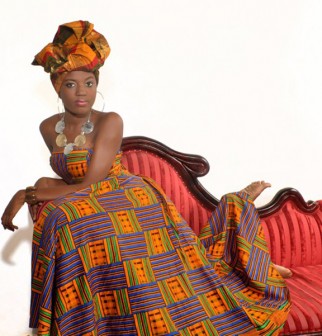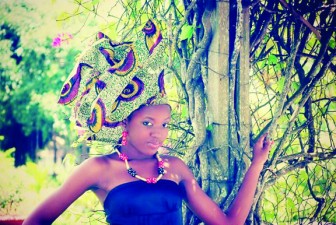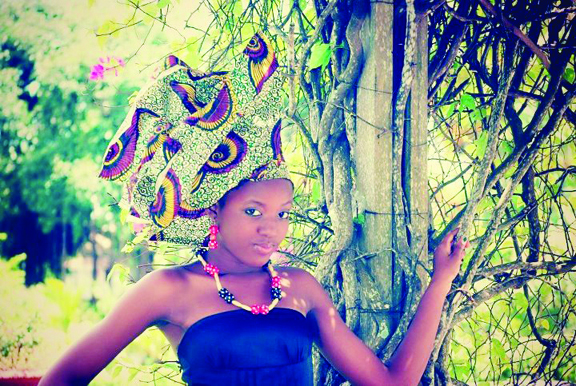Jillicia Pinder entered the Ms Guyana African Queen pageant because to her “it seemed appealing”. It proved to be much more since she won the inaugural title.
Jillicia was born on October 17 1993 in Richmond, Essequibo. She grew up there for a short while before moving to the capital city where she was then raised in a “strict Christian household” with her mom, her stepfather and six siblings.

She described herself as conservative and a bit sporty. The former Central High School student is now studying communications at the University of Guyana. When she is not in classes, she enjoys hanging out with friends though she dislikes the club life. Her hobbies include singing, dancing, poetry and reading.
Jillicia said she was never interested in pageantry until a coordinator of the pageant approached her with the idea. She agreed to participate saying it was a new experience to get over her shyness, gain confidence and represent her culture.
The drive to accomplish something pushed Jillicia to go through with it once she’d started. She said, “I’m usually not involved in a lot of activities and I found this to be the perfect opportunity for self-motivation and a final accomplishment.” She mentioned the great inspiration her mother had on her, “she has been through a whole lot and this is something to make her proud – this is for her.”
Ms Guyana African Queen described the whole pageant experience to be a lifelong lesson and unforgettable. She said, “Overall it was quite pleasant. Initially they were clashes of personality however we overcame all of that.” She mentioned that she did make some friends although the competition was very steep because each girl came with her own talents and all of the other contestants had some previous experience.
“We were all dedicated and that’s what made it work,” Jillicia said.
She described being on stage as nerve wrecking. “I was shaking all over. I was glad for the stage lights that helped to dim out the audience. I kept assuring myself that I can do this quickly and get it over with where I will be calmed afterwards; I just have to do my best.”

Jillicia mentioned that she and her entourage will be visiting Queenstown in a couple of weeks.
For her talent piece, Jillicia blew away her competitors with an African song entitled “Malaika” which she sang completely in Swahili and which left the audience and the judges mesmerized. She mentioned that a coordinator approached her to sing the song and she was a little reluctant at first. She started to learn the song and get the pronunciations in order before grooving into the music. “I always had a passion for music,” she said. “I sang in church so I had no problems with vocals.”
The song she sang is centred on this young man who was in love with this young lady. Because he was poor he didn’t want to be with her knowing that he was not able to support her. The chorus “Malaika, Nakupenda, Malaika” means “My angel, I love you, my angel”. The song concludes saying, “Instead of keeping you here to suffer with me, I rather you go on your own and be myself just because I love you.”
When asked how she plans on using her crown, Jillicia replied, “To be able to be this ambassador for young African women is an honour. I do have young ladies who look up to me; it’s an accomplished feeling to not only represent my culture but young ladies as a whole.”
She plans on helping young ladies by not only educating them on the African culture but also ways that they can better themselves as individuals and not become victims of social ills.
But young ladies are not her only focus. “I want to do something for young men as well. They are always complaining that we women just taking over everything and dominating, so I plan on uniting genders by making them a part of the same workshops as young women because it’s not just a female issue it’s a health issue.”
She noted that the rates of violence are higher in male to female ratios than female to male. “I feel that anger management and drug abuse are very important sessions the men can be a part of, they need to find better outlets at expressing themselves,” she said.
She will be collaborating with the Guyana Faith and HIV Coalition to put these programmes forward since this organization has already set the foundation. Future plans include a fund raiser for the girls of the African Nation of Mali on October 11 in commemorating the ‘International Day of the Girl Child’. She noted the hardship girls go through not being able to go to school because of poverty.
Other public awareness campaigns she plans on doing before her term concludes are education, domestic violence, parenting, suicide, child abuse, family planning, community life competence, alternatives to violence (anger management/conflict resolution) personal health and sustainable development in agriculture.






